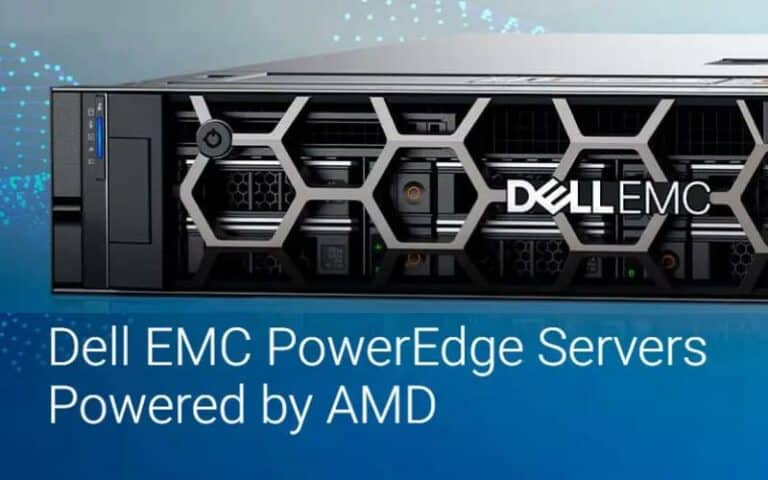Dell Technologies announced PowerEdge servers based on AMD’s new EPYC Genoa processors. The servers are equipped to handle high-performance workloads in datacenters.
The PowerEdge server series brings more performance and storage improvements to customers’ infrastructure, Dell said. The servers are particularly suitable for applications with high computing demands, including data analytics, AI, high-performance workloads and virtualization.
AMD EPYC Genoa
The introduction of the 5 nanometer-based AMD EPYC Genoa processors should improve energy efficiency. AMD’s latest datacenter processor series is the first to incorporate PCIe 5.0 connectivity, DDR5 memory and Compute Express Link.
Socket configurations
The new PowerEdge servers consist of four 1- and 2-socket configurations. The flagship is the Dell PowerEdge R7625, which should improve application and storage performance. The manufacturer sees the server as the backbone of datacenters.
The Dell PowerEdge R7625 is a 2-socket 2U server. According to Dell, the model is capable of accelerating in-memory database performance by 72 percent — the highest on the market. The server will be available in limited configurations as early as this month. The specifications of the configurations are unknown at this time. General availability is scheduled for February 2023.
The Dell PowerEdge R7615 is a 1-socket 2U server with higher memory bandwidth than previous PowerEdge servers. Increased drive density should allow the server to better handle simultaneous tasks while taking up less space in datacenters. AI workloads are one of its specialities.
The Dell PowerEdge R6625 is a 2-socket 1U server that balances flexibility and density. According to Dell, the system is especially suitable for handling HPC workloads and running multiple instances for virtual desktop infrastructures.
Finally, the Dell PowerEdge R6615 is a 1-socket 1U server that offers plenty of functionality for VMs. Dell says that the server takes up less space in datacenters without sacrificing performance.
Durability and security
According to Dell, the new PowerEdge server series should contribute to sustainable datacenters. To this end, the servers have been optimized for energy efficiency, thanks in part to AMD EPYC Genoa processors.
In addition, the servers feature Dell Technologies Smart Cooling to reduce CO2 emissions. The technology increases airflow between systems. Servers are efficiently cooled for extended periods of time, which should ultimately reduce heat generation and energy consumption. Moreover, several server parts are made of recycled plastic.
Dell also provided the new PowerEdge servers with additional security functionality through a built-in “cyber resilient” architecture. The architecture includes security features such as system lockdown, drift detection, multifactor authentication and confidential computing. This should increase datacenter security at the core, the organization points out.
Tip: Dell Technologies wants to relieve IT-departments with APEX, but will it succeed?
